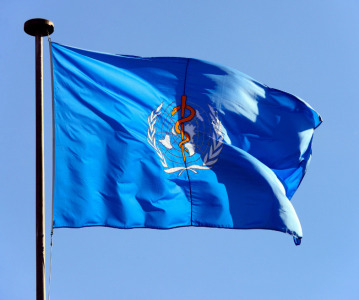Novartis Kisqali receives FDA Breakthrough Therapy designation
.png)
Designation based on Phase III MONALEESA-7 results demonstrating superior efficacy of Kisqali in combination with oral endocrine therapy compared to oral endocrine therapy in pre- or perimenopausal women who received no prior endocrine therapy for advanced disease.
Novartis has announced Kisqali (ribociclib) received FDA Breakthrough Therapy designation for initial endocrine-based treatment of pre- or perimenopausal women with hormone-receptor positive, human epidermal growth factor receptor-2 negative (HR+/HER2-) advanced or metastatic breast cancer in combination with tamoxifen or an aromatase inhibitor.
This Breakthrough Therapy designation is based on positive results of the Phase III MONALEESA-7 trial demonstrating Kisqali in combination with tamoxifen or an aromatase inhibitor as initial endocrine-based therapy significantly prolonged progression-free survival (PFS) compared to endocrine therapy alone. A total of 672 women ranging from 25 to 58 years in age were enrolled and randomized in the trial. All treatment combinations also included goserelin. Treatment benefit with Kisqali combination therapy was consistent compared to the overall population regardless of treatment with tamoxifen or aromatase inhibitor endocrine partners, and across predefined patient subgroups.
"This Breakthrough Therapy designation reflects the significance and promise of the MONALEESA-7 data presented at SABCS last month," said Samit Hirawat, Head, Novartis Oncology Global Drug Development. "Younger women often have distinct treatment goals and needs, and it is important for oncologists to offer effective and well-studied treatment options for their specific disease. We look forward to working with FDA to make this combination therapy available to premenopausal women living with HR+/HER2- advanced breast cancer in the US as soon as possible."
MONALEESA-7 was the first Phase III trial entirely dedicated to evaluating a CDK4/6 inhibitor in premenopausal women with HR+/HER2- advanced breast cancer. The trial evaluated Kisqali in combination with oral endocrine therapies (tamoxifen or an aromatase inhibitor) and goserelin compared to oral endocrine therapy and goserelin in this patient population. In subgroup analyses of median PFS by endocrine partner, Kisqali in combination with tamoxifen and goserelin demonstrated 22.1 months median PFS compared to 11.0 months for tamoxifen and goserelin alone; Kisqali in combination with an aromatase inhibitor and goserelin demonstrated 27.5 months median PFS compared to 13.8 months for an aromatase inhibitor and goserelin alone.
No new safety signals were observed in the MONALEESA-7 trial; adverse events were generally consistent with those observed in MONALEESA-2, identified early and mostly managed through dose interruptions or reductions. Combination treatment with Kisqali was well tolerated with a discontinuation rate due to adverse events of 3.6% compared to 3.0% in patients who received endocrine therapy alone. The most common (>=5%) grade 3/4 adverse events in patients receiving Kisqali combination therapy compared to endocrine therapy alone were neutropenia (60.6% vs 3.6%) and leukopenia (14.3% vs 1.2%).
Premenopausal breast cancer is a biologically distinct and more aggressive disease than postmenopausal breast cancer, and it is the leading cause of cancer death in women 20-59 years old.
This Breakthrough Therapy designation marks the second for Kisqali. The first Breakthrough Therapy designation for Kisqali was granted in August 2016 based on results of the Phase III MONALEESA-2 trial.
Related News
-
News Pharmaceutical industry supports COP28 health stance in joint statement
As COP28 takes place over this week in Dubai, UAE, several bodies in the pharmaceutical and health industries have come together to announce support of key movements in sustainability in the sector, and to recognise sustainability as a health issue.&nb... -
News Biden backs Cold-War measures to shore-up medical supply chains
In a recent strategy to combat rising inflation and the cost of living crisis, President Joe Biden has invoked a Cold War-era act to increase investment in a selection of medicines and supplies. -
News CPHI Podcast Series: What does the changing US Pharma market mean for industry and patients alike?
In this week's episode of the CPHI Podcast Series Lucy Chard, Digital Editor for CPHI Online is joined by James Manser to discuss the political and market changes in the US pharma field. -
News Which 10 drugs are open to price negotiation with Medicare in the USA?
The Centres for Medicare & Medicaid Services, under the Biden administration in the USA, has released a list of the 10 drugs that will be open to price negotiations as part of the new legislation under the Inflation Reduction Act (IRA). -
News 10 Major Drug Approvals So Far in 2023
Last year, 37 novel drugs were approved by the FDA, this was a high number for such a category, and covered many fields including oncology, demonstrating how promising further research is, and how it is only continuing to build. To date, there are alre... -
News Novartis agrees for copies to be made of cancer drug to reach poorer countries
Novartis signs agreement with MPP to have generics of it's leukemia drug made so that it can be more easily distributed to the world's poorer countries. -
News CPHI Podcast Series: outsourcing and manufacturing trends
Listen to the CPHI Podcast Series this June to hear Gil Roth of the PBOA speak with Digital Editor Lucy Chard about the biggest trends and topics to watch in pharma outsourcing and manufacturing at the minute. -
News New WHO health emergency guidelines expect full transparency from Big Pharma
The WHO are proposing a new set of pandemic guidelines to set out how future global health crises should be handled.
Position your company at the heart of the global Pharma industry with a CPHI Online membership
-
Your products and solutions visible to thousands of visitors within the largest Pharma marketplace
-
Generate high-quality, engaged leads for your business, all year round
-
Promote your business as the industry’s thought-leader by hosting your reports, brochures and videos within your profile
-
Your company’s profile boosted at all participating CPHI events
-
An easy-to-use platform with a detailed dashboard showing your leads and performance







